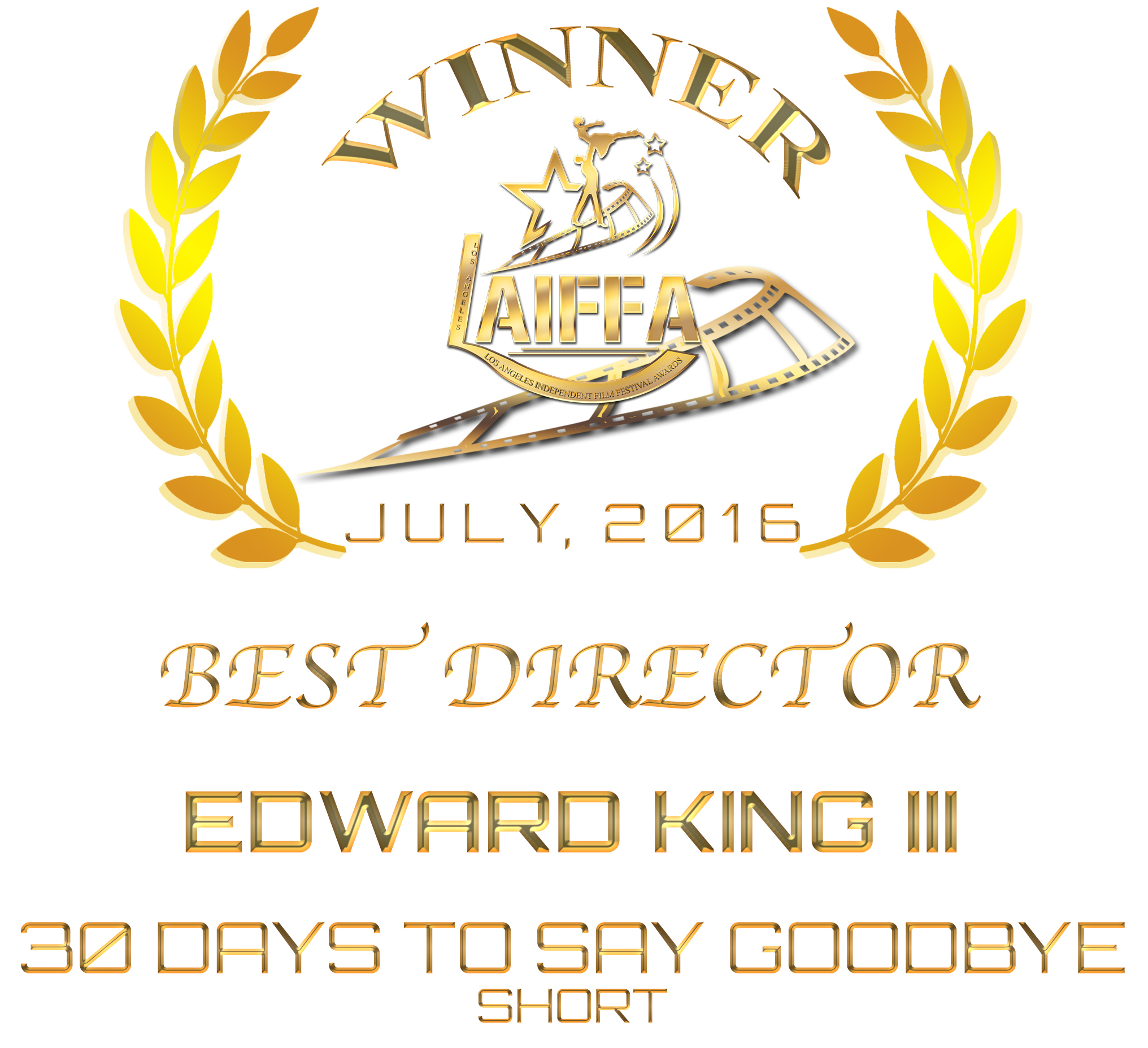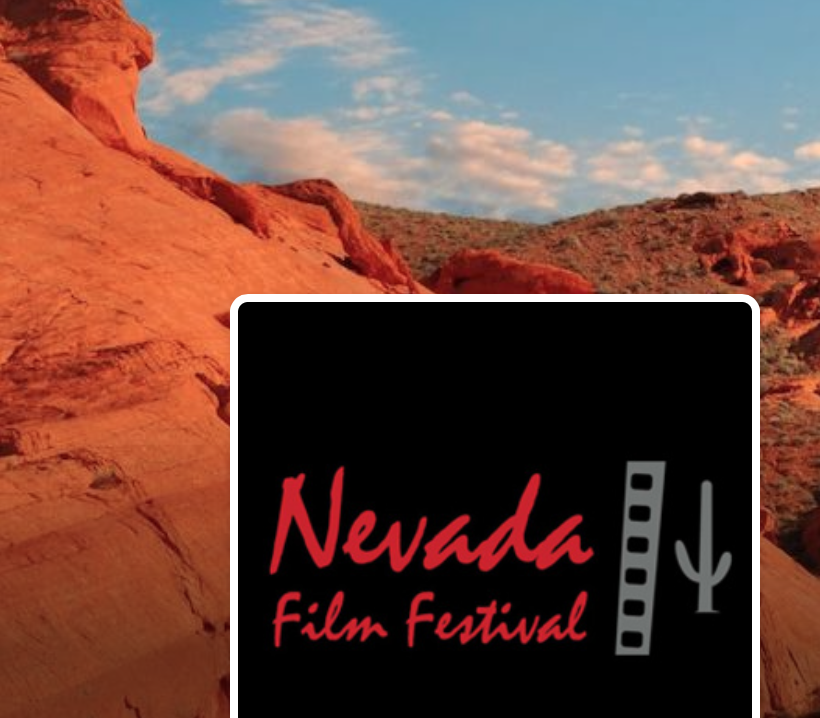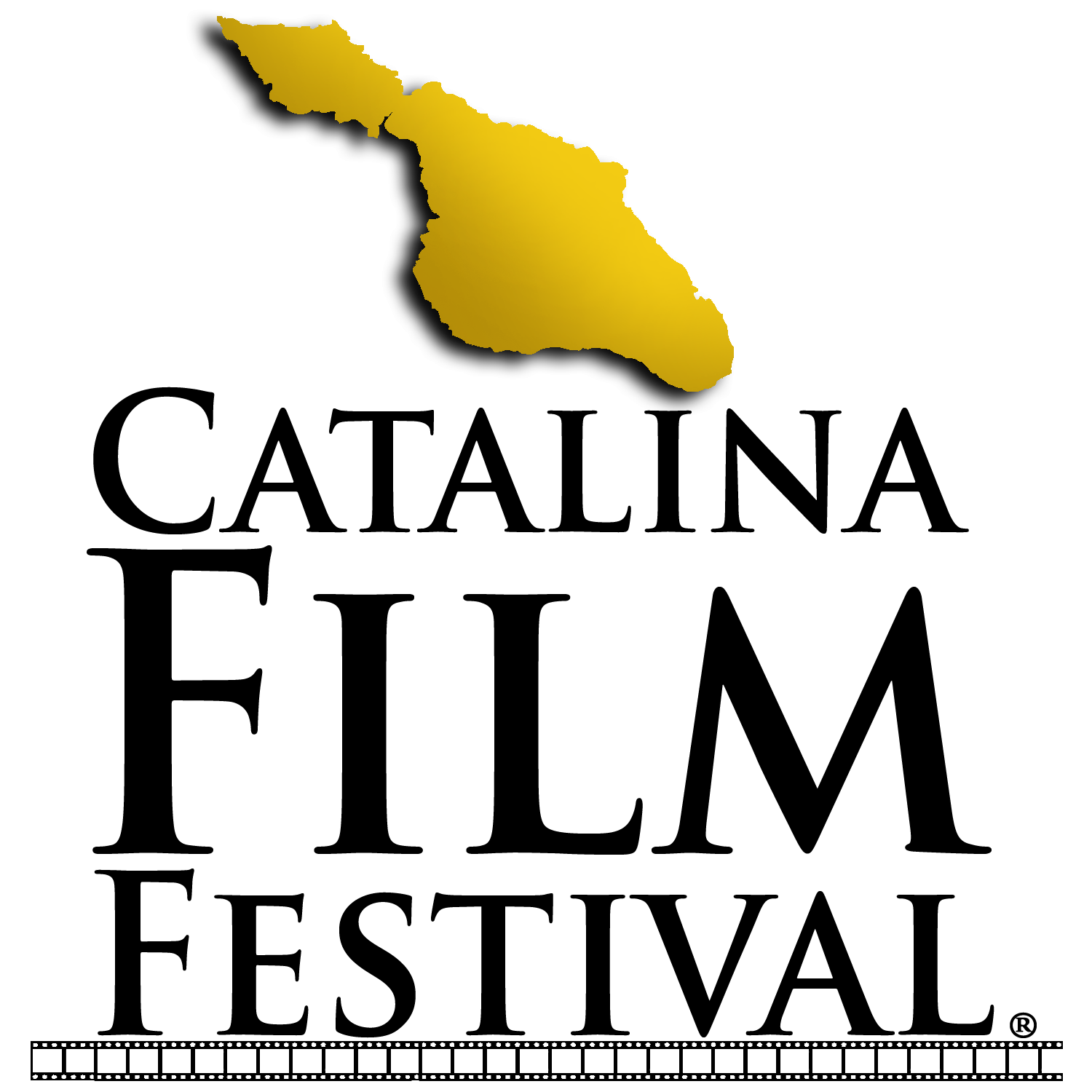Well, here we are again. Awards season. The only industry where your job is celebrated every year and if you’re really good at it you get to hear the words “And the Oscar goes to” before your name. Think that’s not a big deal? On the contrary, exceedingly so. We guess that’s why everybody wants to be a part of it in some way. But only a precious few are. One of those few is our guest today, 2019 Oscar winner and academy member Andrew Carlberg. He had the chance to hear those words and grace the 2019 Oscar stage when SKIN received the Oscar for best live action short film.
Andrew Carlberg, thank you for joining us.
Tell us a little about yourself.
I’m a producer in various mediums (film, television, theater, events) who was born in Oklahoma and raised in North Carolina. I moved to Los Angeles two weeks after graduating from UNC Chapel Hill – and have been working in entertainment from that moment.
Was there a particular event or time that you recognized that producing was not just a hobby, but that it would be your life and your living?
I’ve had the extreme fortune of being employed in the entertainment industry for my entire adult life. When I moved to Los Angeles, I didn’t know I wanted to be a producer. However, after observing a few producers in action, it became clear that it aligned strongly with my skill set.
Was it harder to get started or to keep going? What was the particular thing that you had to conquer to do either?
For me, it’s harder to keep going. This business is a rollercoaster – made of high highs and low lows. It’s incredibly easy to lose perspective.
What’s challenging about bringing a script to life?
Until you see something live, you never truly know how it will land. And even then, you don’t know how an audience will perceive it. Every step of the process (development, production, post-production, distribution) is crucial to a film’s success.
When do you know a script is ready to shoot, and what is your process of getting it there?
Some things are ready upon first read, and some require adjustments and notes. A healthy relationship with the writer is key to pushing it over the finish line.
Why did you feel doing SKIN was important?
It was an extraordinarily timely story told in fresh way.
What were the strengths and weaknesses of the production from SKIN?
The entire team was really great. Not a weak link. Everyone cared deeply and gave their all. That said, it’s a short film that contains tough subject matter that involves children, animals, special effects make-up, drones and a ton of locations. It required flexing a lot of muscles.
Tell us about winning the Oscar for SKIN in 2019. How did that impact you?
It was beyond surreal. I was incredibly proud of the film – and the validation was overwhelming. The Oscars have been a part of my life since elementary school – it felt like a dream. An exhausting dream.
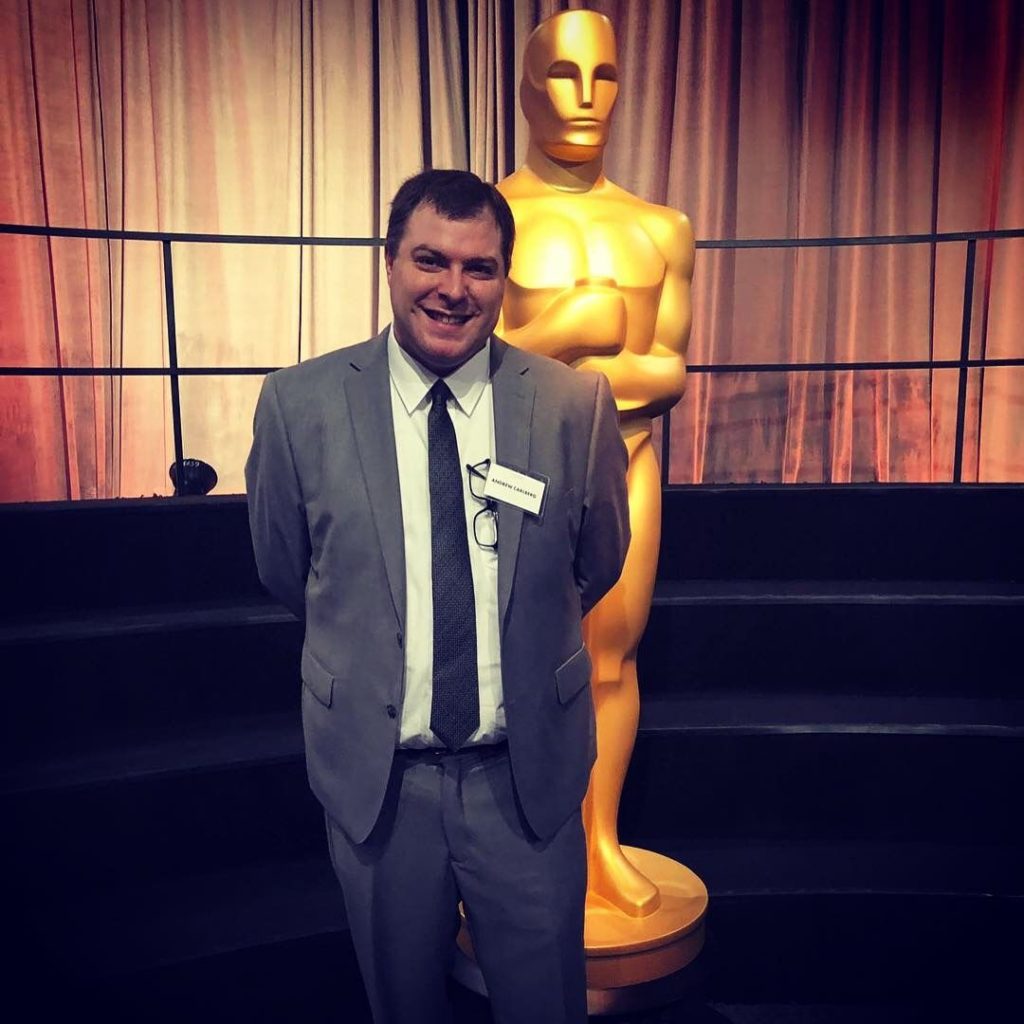
Andrew and Oscar sharing a moment before the big day in 2019.
Although SKIN might be what you are currently known for, it wasn’t your first film. You produced a film on Netflix titled SUN DOGS. What doubts did you have about your abilities while making SUN DOGS?
I actually didn’t have many doubts about my abilities when making that film. It definitely had its challenges (not enough money, not enough time), but my shorthand with director Jennifer Morrison (based on our previous collaborations) accented the trust and confidence I had in her skill and vision.
We get noticed because of our successes – but we create them on the back of our failures. What failures (of your own) have you been able to learn from? How did they change you and your process?
I won’t give titles – but there are definitely projects I’ve produced that don’t need to be seen. Not everything works out the way it was intended or envisioned – but I can safely say why I did each project. The best you can do is look at the current reality, and work to adjust it for the future.
What was the most important lesson you had to learn that has had a positive effect on your career? How did that lesson happen?
There is no correlation between how successful you are and how kind you are. I’ve been lucky to work with some incredibly known artists – and more often than not – have been blown away by their professionalism and positive energy.
In your experience, what is the most important thing a budding Producer should know?
Watch and read as much as you can. Take a genuine interest in others and their work.
How have you discovered members of your team and how do you keep the relationship with them strong?
Prolifically making short films and actively producing theater has expanded my Rolodex beyond compare – and allows me to work with individuals I might not have the fortune of encountering due to timing or access.
Those that make films, know how much they are really collaborations. What makes a fruitful collaboration? What do you do to enhance the collaborative process?
Listening and trusting your creative partners – but also challenging them, and allowing yourself to be challenged.
Who have been some of your favorite people (directors, actors, co-producers) to work with so far? And why?
Too many to name. Jennifer Morrison, Adam Brody, Carlson Young, Michael A. Shepperd. It doesn’t feel right to name favorites. I’ve been very fortunate. Bottom line is they inspire me.
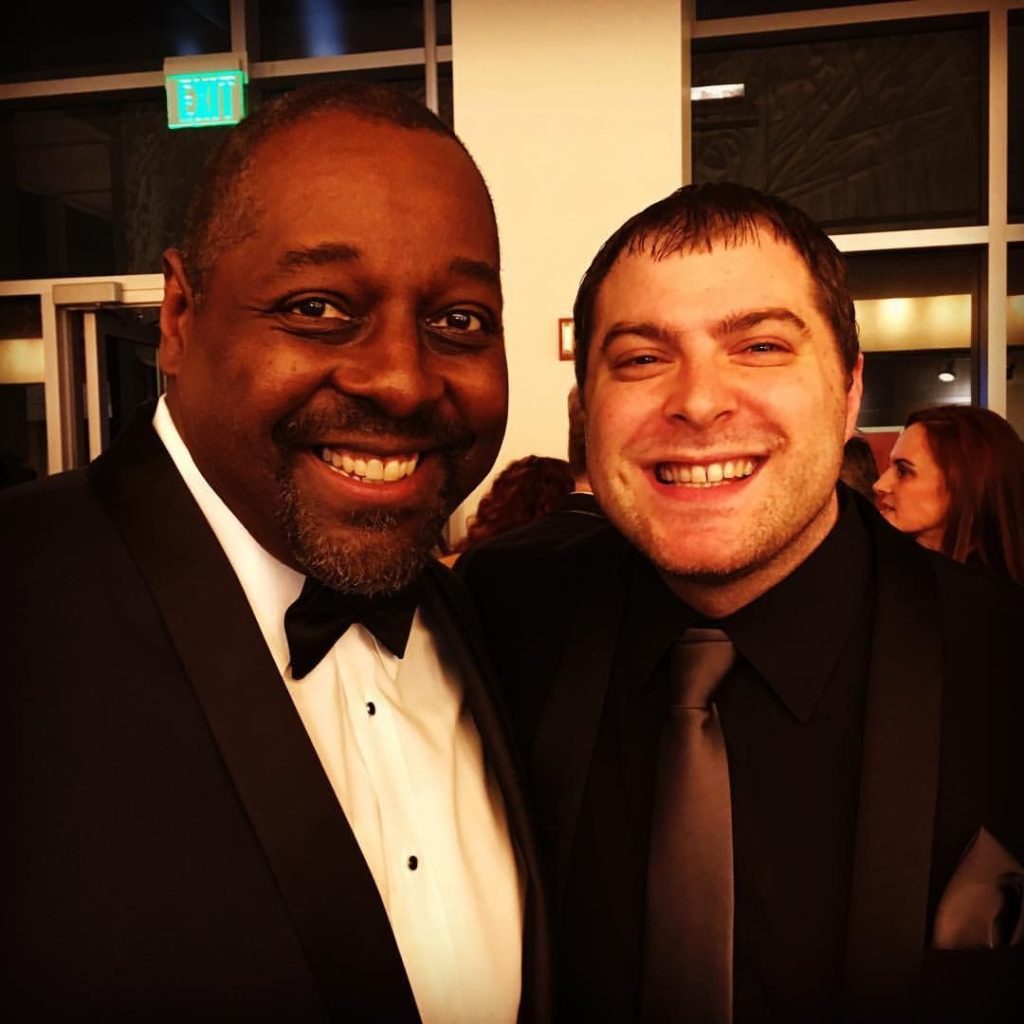
Michael A. Shepperd and Andrew Carlberg enjoying a photo opp during the Hollywood award season.
What are personal attributes that make for a good Producer, and what do you do to foster them?
Levelheadedness, curiosity, strong work ethic. Ultimately a great producer, in my opinion, is someone who can balance art with business. Creativity with commerce.
How do you think others see you as a professional? How do you want others to see you as a professional? Explain.
I hope others see me as a hardworking and supportive producer – one that doesn’t quite fit into any one box. If we click and have faith in one another – I’d like to think I have the skill sets to adapt to the needs of the director. Also, I hope people ultimately find pleasure in my company.
Films spring from the creative process – sometimes most dramatically in the editing process. It’s often really hard to tell the difference between what we desired and what we achieved. How have you encountered this and how do you move through it?
There are many films that have found new life through editing. You can’t be afraid to cut something that isn’t working. Every department head is a filmmaker as well – not just the director. The editor is unique though in that they get to bring their perspective to the project after it’s been shot.
What role have film festivals played in your life so far? Why are they necessary? How do you get the most out of them?
Every film has a different path – some take the festival route and that can be valuable launching pad. It’s also fantastic to finally see your film with an excited audience.
Are you on social media and do you use it in your work? Why or why not?
Yes and yes. But also for fun. My only real rule on social media is to not put down anyone else’s work. And I’ve stayed extremely true to that.
Do Producers have any responsibility to culture? Do you feel that being a creative person requires that you give back or tell a particular story or not do something else? Why or why not?
Everyone on a set has that responsibility. It’s not unique to the producer. We all are there to work together to tell the best story.
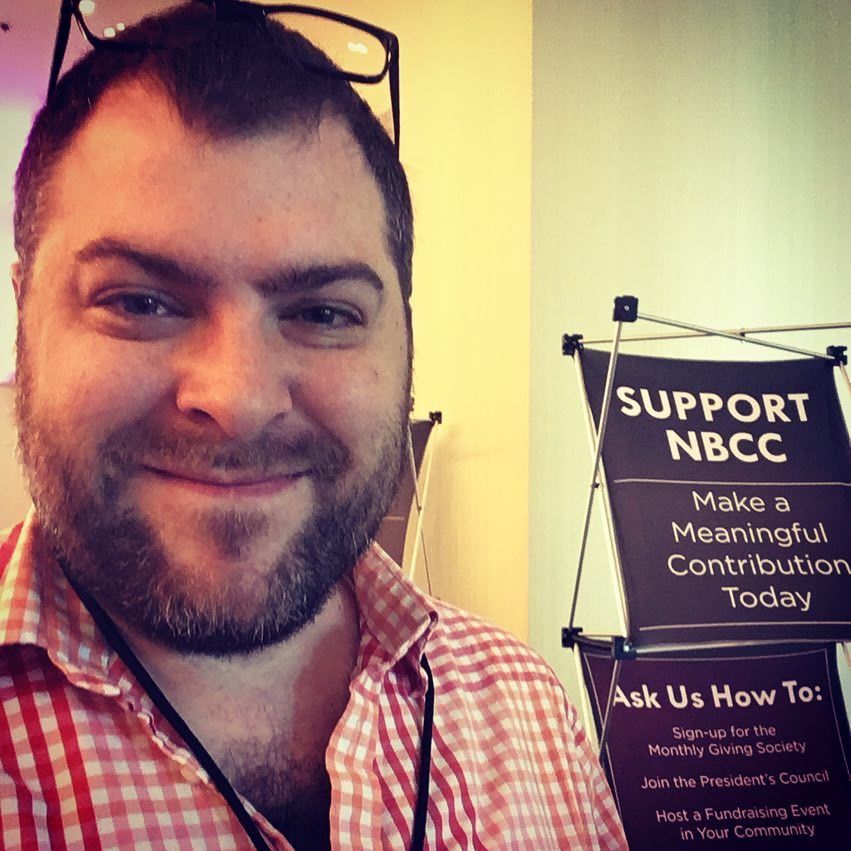
Andrew spending his spare time and doing great work with the National Breast Cancer Coalition.
What makes a film great for you? Are there certain qualities that make a film better for you?
A complete vision that is clearly told. The more inventive and original, the better.
Is the film business fair? Why or why not? How do you make the apparatus work for you?
Nothing in life is fair, least of all the film business. It’s a continual uphill battle – but ultimately desire to tell a story wins. I’m continuing to learn how to make it work for me everyday – and will throughout my career. I don’t think that will end.
If there is one or more things you think would make the film industry better, what would it be?
There are so many movies (and series) now – that one truly can’t watch and enjoy all that deserves to be watched. I miss the time (at times) when you could truly catch all of a week’s new releases.
Who do you look up to as a producer and fellow producer?
Oprah Winfrey. She’s truly transcended what many thought was possible in media. And she’s done it with high class, great taste, and across every medium.
What do you want to be when you grow up?
Living and breathing it as we speak.
If someone was going to make your life into a movie, who would play you?
Brad Pitt, naturally. Kidding. A young Brad Pitt.
If you had a magic wand, what wish would you grant yourself and why?
I’d get two hours to everyone else’s one hour.
Thank you again for joining us Andrew! We will keep a look out to see what you do next. All our best!
SSP
